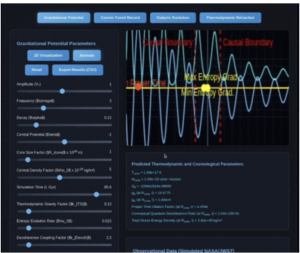
Adani, Hindenburg and Supreme Court
The Supreme Court on Wednesday concluded that there was no need for it to take action on the allegations of stock manipulation levelled by US-based shortseller Hindenburg research against the Adani group of companies.
While doing so, the Court asked the Securities Exchange Board of India (SEBI) and the investigating agencies of the Central government to probe whether there was any violation of law in the conduct of Hindenburg Research and other short sellers, which had led to volatility in the Indian securities market and losses to Indian investors.
“SEBI and the investigative agencies of the Union Government shall also enquire into whether there was any infraction of law by the entities, which engaged in short-selling on this occasion. The loss which has been sustained by Indian investors as a result of the volatility caused by the short positions taken by Hindenburg Research and any other entities acting in concert with Hindenburg Research should be probed,” the judgment said.
Notably, one petition on the issue before the Court called for the registration of a first information report (FIR) against Hindenburg Research founder Nathan Anderson and his associates in the wake of their report on Adani and the consequent effect it had on the Indian securities market.
In its 46-page judgment, the Supreme Court recorded SEBI’s submission that short-selling is desirable and essential to provide liquidity in the market and to correct prices of over-valued stocks.
Therefore, SEBI cautioned against imposing strict restrictions on the practice of short-selling. However, the Court recorded a statement made by Solicitor General Tushar Mehta that “measures to regulate short selling will be considered by the Government of India and SEBI.”
As far as the entities who took a short position on Adani stocks following the Hindenburg report, the Court ordered that suitable action shall be taken if any violation of law is found by such short-sellers.
Here are some other key takeaways from today’s judgment:
1. Supreme Court cannot substitute its view or supplant the role of experts such as SEBI
The Court said that it cannot examine the correctness, suitability or appropriateness of policy framed by a specialized regulatory agency in collaboration with experts.
It said it can only examine whether a policy is in line with the Constitution or whether it violates a statutory law or is manifestly arbitrary, the Court added.
“The legality of the policy, and not the wisdom or soundness of the policy, is the subject of judicial review…This Court must be mindful of the public interest that guides the functioning of SEBI and refrain from substituting its own wisdom in place of the actions of SEBI.”
2. No apparent regulatory failure attributable to SEBI
The Court rejected arguments that the SEBI had made amendments to its regulations to make it more difficult to unearth violations of the law, particularly the regulations governing disclosure norms for Foreign Portfolio Investments (FPI) and related party transactions.
The petitioners had alleged that such a move was indicative of SEBI’s failure to act against alleged legal violations by Adani.
The Court found merit in SEBI’s argument that the amendments in question were meant to strengthen disclosure norms by moving from a “disclosure on demand” scenario to an upfront disclosure regime.
It further noted the SEBI’s submission that the difficulty it faces during investigation has less to do with laws in India and more to do with there being different regulations on FPIs in foreign jurisdictions where entities being probed may operate.
The Court also noted that SEBI has completed 22 out of 24 investigations against the Adani Group, which it opined indicated that the markets regulator has not failed in its duties.
The Court also recorded the Solicitor General’s assurance that SEBI would complete its pending (two) investigations “preferably within three months.”
3. No reason to transfer probe against Adani to CBI or SIT
The Court said that its powers to transfer investigations could only be exercised in extraordinary circumstances where the authority first tasked with the investigation exhibits “glaring, wilful and deliberation inaction.”
It proceeded to find that the SEBI’s conduct inspired confidence and that there was prima facie no deliberate inaction or inadequacy in the SEBI probe.
It was further pointed out that the apex court has already exercised “extraordinary powers” by setting up an Expert Committee to assess the situation.
4. Allegations of conflict of interest against members of the Expert Committee not in good faith
The Court rejected concerns raised by the petitioners regarding the impartiality of three members of Expert Committee.
It took critical note that these concerns were raised at a belated stage, almost six months after the Committee was formed. This, prima facieindicated that such allegations were not made in good faith.
The Bench specifically dealt with the allegations against Somasekhar Sundaresan that he had represented the Adani Group before various fora including the SEBI Board as a lawyer. In response to this claim, the Court said,
“The acceptance of a professional brief by a lawyer in 2007 cannot be construed to reflect “bias” or even a “likelihood of bias” in 2023. There is an absence of proximity both in terms of time (the alleged appearance was sixteen years ago) and subject matter.”
Similar allegations against OP Bhatt and KV Kamath have not been adequately substantiated by the petitioners, it was held.
5. Reliance on OCCRP report and DRI letter is misconceived
The Court has opined that it cannot go by newspaper reports on alleged malpractices by Adani, particularly when the petitioners have not verified the authenticity of such claims.
“Such reports by ‘independent’ groups or investigative pieces by newspapers may act as inputs before SEBI or the Expert Committee. However, they cannot be relied on as conclusive proof of the inadequacy of the investigation by SEBI,” the judgment stated.
The Bench also found that no reliance could be placed on a 2014 letter sent by the Directorate of Revenue Intelligence (DRI) to the then SEBI chairperson about alleged potential stock manipulation by Adani.
The Court pointed out that the Additional Director General (Adjudication), DRI eventually concluded that these allegations were not established. Further, this conclusion was confirmed by the Customs, Excise & Service Tax Appellate Tribunal (CESTAT) in 2022 and by the Supreme Court in March 2023.
6. Indian markets showed resilience
The Court also noted the Expert Committee’s finding that the Indian securities market showed resilience despite the market fluctuations tied with Adani-related events.
On a parting note, the Court also urged the SEBI and the Central government to constructively consider various suggestions made by Expert Committee to improve the strength of the Indian securities market.








